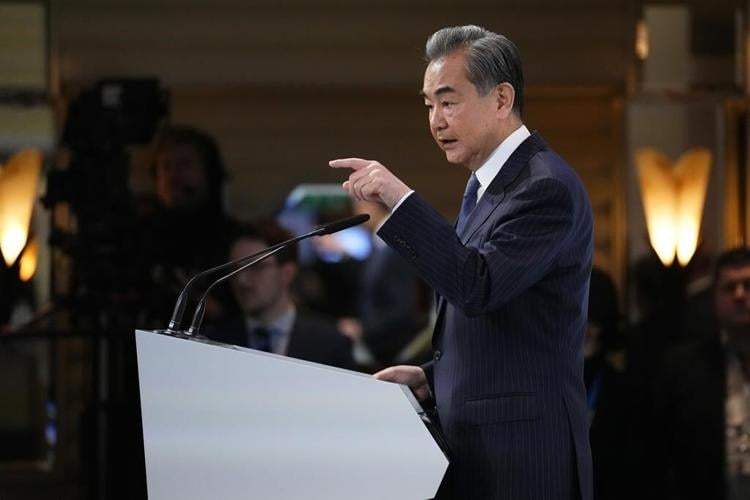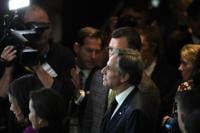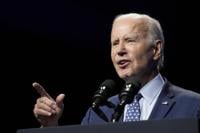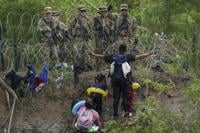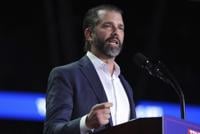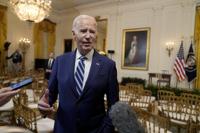MUNICH (AP) — The top diplomats from the United States and China met on Saturday in the first high-level contact between their countries since the U.S. shot down an alleged Chinese spy balloon two weeks ago, with Secretary of State Antony Blinken sending the message that Beijing's surveillance program had been “exposed to the world.”
Blinken and Wang Yi, the Chinese Communist Party’s most senior foreign policy official, held the hourlong talks in Munich, where they were attending an international security conference, according to the U.S. State Department.
“I made very clear to him that China sending its surveillance balloon over the United States in violation of our sovereignty, in violation of international law, was unacceptable and must never happen again," Blinken said Saturday in an interview for CBS' “Face the Nation.”
His spokesman, Ned Price, said in a statement that Blinken also told the Chinese official that his nation's “high-altitude surveillance balloon program — which has intruded into the airspace of over 40 countries across five continents — has been exposed to the world.”
Blinken had earlier this month due to the balloon incident, which has become a major issue of contention between the two countries. A meeting at the conference in Germany had been widely anticipated.
Blinken also told Wang that the U.S. does not seek conflict with China, repeating a standard talking point that the Biden administration has provided since it has come into office.
“The United States will compete and will unapologetically stand up for our values and interests, but that we do not want conflict with the PRC and are not looking for a new Cold War," Price said. Blinken "underscored the importance of maintaining diplomatic dialogue and open lines of communication at all times.”
In addition to the balloon incident, Price said Blinken had reiterated on providing assistance to Russia to help with its war against Ukraine, including assisting Moscow with evading sanctions the West has imposed on Russia.
“I warned China against providing materiel support to Russia,” Blinken said in a tweet. "I also emphasized the importance of keeping open lines of communication.”
Earlier Saturday, Wang had renewed Beijing's criticism of the United States for shooting down the balloon, arguing that the move did not point to U.S. strength.
Beijing insists the white orb shot down off the Carolina coast on Feb. 4 was just an used mainly for meteorological research that went off course due to winds and had only limited “self-steering” capabilities.
Wang, the director of the Office of the Central Commission for Foreign Affairs, repeated that insistence in a speech at the conference and accused the U.S. of violating international legal norms in destroying the object with a missile fired from an U.S. fighter jet.
“The actions don’t show that the U.S. is big and strong, but describe the exact opposite,” Wang said.
Wang also accused the U.S. of denying China’s economic advances and seeking to impede its further development.
“What we hope for from the U.S. is a pragmatic and positive approach to China that allows us to work together,” Wang said.
His comments came shortly before an address to the conference by Vice President Kamala Harris, who didn't mention the balloon controversy or respond to Wang's comments. She stressed the importance of upholding the “international rules-based order.”
She said Washington is “troubled that Beijing has deepened its relationship with Moscow since the war began” in Ukraine and that “looking ahead, any steps by China to provide lethal support to Russia would only reward aggression, continue the killing and further undermine a rules-based order.”
__
Lee reported from Washington.

